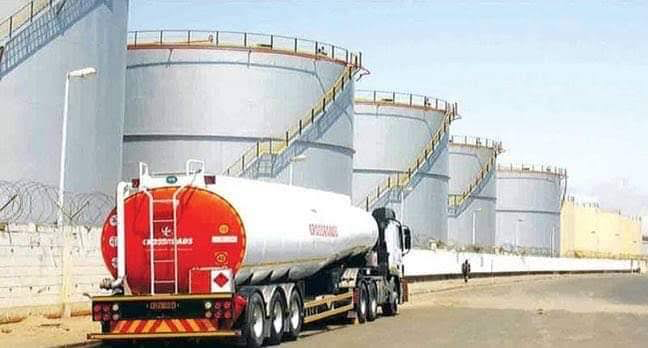In the face of an escalating foreign exchange crisis coupled with operational challenges in the downstream petroleum sector, the actual landing cost of Premium Motor Spirit (PMS), widely known as petrol, has surged to N1,424 per litre, starkly contrasting the N568 per litre price at NNPC retail outlets, the Daily Sun has uncovered. This stark discrepancy has reignited speculations about the return of fuel subsidies, albeit through covert arrangements.
Oil marketers have raised concerns over the dollarization of the fuel supply chain, notably the dollar-denominated charges by the Nigerian Maritime Administration and Safety Agency (NIMASA) and the Nigerian Ports Authority (NPA), arguing that it exerts undue pressure on the naira and destabilizes the economy. This situation underscores a significant shift from President Bola Tinubu’s commitment to ending the subsidy regime, as stated in his inaugural address on May 29, 2023.
At the recent Major Energies Marketers Association of Nigeria (MEMAN) Quarterly Press Webinar, Mr. Tunji Oyebanji, Managing Director of 11 Plc (formerly Mobil Oil Plc), voiced that in a fully deregulated market, petrol prices could closely mirror those of diesel. This statement came amid revelations that the ex-depot prices for diesel and petrol were pegged at N1,424 and N623 per litre respectively, with diesel prices reportedly at N1,200 in February 2024 according to MEMAN data.
Clement Isong, the Executive Secretary of MEMAN, expressed difficulty in pinpointing the exact landing cost of petrol due to the volatile exchange rate and the cessation of fuel imports by MEMAN members. He highlighted the challenge of adopting a consistent exchange rate for cost calculations, given the fluctuating rates. Isong deferred to the NNPC for accurate landing cost figures, citing their ongoing importation activities.
The discussion further delved into the dollar component within the fuel supply chain, with Isong detailing a $10 port charge per metric ton of petrol and an additional $30 for ship-to-ship charges. He also noted an increase in transportation rates, now ranging between N5 and N8 per litre, contingent on the transporter and employer.
In response to these challenges, President Tinubu pledged in July 2023 to vigilantly monitor inflation and exchange rate movements, committing to intervene in market operations to ensure energy security. Isong advocated for a shift towards more affordable energy options, highlighting the government’s interventions that have provided some level of market stability.
The discussion also touched on the transition to gas as an alternative energy source. Mr. Femi Fanoiki, a consultant on Liquefied Petroleum Gas (LPG), shed light on the government’s efforts to promote LPG usage in industrial and automotive sectors. He emphasized the necessity for further infrastructure development to enhance the adoption of gas, acknowledging the positive impacts of government interventions but calling for more significant investments in this area.
This evolving scenario in Nigeria’s petroleum sector, marked by the steep rise in petrol’s landing cost and the broader implications for the economy, underscores the complexities of navigating energy policies and market dynamics amidst a foreign exchange crisis. As stakeholders grapple with these challenges, the push towards alternative energy sources and a deregulated market environment becomes increasingly critical for the nation’s energy security and economic stability.



